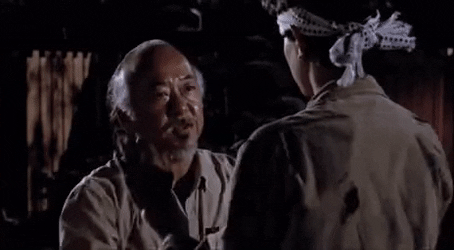
Frontline Digital Transformation
5 min read
Where is Your Implicit Knowledge Hiding?

Implicit (tacit) knowledge is difficult to communicate and often remains isolated in the heads of employees. However, this accumulation of operational skills and insights has an immense organizational value that is simply waiting to be tapped.
Properly leveraging implicit knowledge will allow your organization to solve problems faster and prevent “brain drain,” as the wave of Baby Boomers leave the workforce.
Implicit Vs. Explicit Knowledge
Categorically, we can put organizational knowledge into two main camps - implicit and explicit. While the definitions for these lack consensus, the main distinctions revolve around:
- How the knowledge was formed
- How easily the knowledge can be transferred
What is Explicit Knowledge?
Explicit or tangible knowledge is the concrete information that comprises essential information and data. It is formed institutionally, as processes and information are documented over time. Things like standardized procedures and safety protocols are documented by necessity and are crucial to operations. This knowledge is easy to store and pass between people because it exists in the form of documents, records, or reports.
What is Implicit Knowledge?
Implicit or intangible knowledge includes personal stories, skills, and intuition-based learnings. This knowledge is formed through experience, in-person training, or mentorship. The nature of implicit knowledge makes it more difficult to communicate and often remains siloed or lost. A bulk of tribal knowledge falls in this category.
Companies regularly fail to capture implicit knowledge because the information is informal, or experience-based. But it is more than a collection of informal knowledge, it’s the practical application of knowledge gained from experiences and other people.
Implicit Knowledge - the practical application of knowledge gained through experiences and lessons from other people.
Implicit Knowledge is Reusable
Because it is rooted in personal experience, holders of valuable implicit knowledge may seem to have a high level of intuition, or “know-how.” This is because implicit knowledge consists of the technical skills and best-practices that are transferable between jobs. This transferable quality of implicit knowledge is what makes it so valuable to your operations.
The best and most widely-known example of implicit knowledge in practice is none other than, The Karate Kid. As funny as it is to look back on, most can remember how Daniel thought he was learning meaningless household chores, but those same skills became the foundations for his training.
Wax on, wax off.

This same re-use of knowledge can be applied to any work environment. Implicit knowledge can be leveraged in a variety of new ways to help make operational improvements, solve unique problems, and upskill employees.
The Dangers of Unmanaged Implicit Knowledge
Unfortunately, implicit knowledge has an expiration date; i.e. brain-drain. 57% of Baby Boomers have shared less than half of the knowledge needed to perform their job when they retire. More shocking, 21% have shared none of their knowledge — almost a quarter of a generation’s experience and insights.
Without the successful transfer of implicit knowledge between generations, the quality and effectiveness of your operations will suffer. Companies should actively seek to capture and share implicit knowledge before it’s too late.
“The retirement onslaught as we predicted is actually happening. You don’t have to be a genius. Just look at the age profile.”
- Patrick Flaherty, U.S. State Department of Labor
Making Implicit Knowledge, Explicit
Capturing implicit knowledge boils down to discovering, understanding, and documenting hidden knowledge and insights within your organization. In other words, making implicit knowledge, explicit.
By getting implicit knowledge out in the open, the entire workforce can benefit. Imagine how operational performance will improve if new employees have access to the same know-how and insight that took decades to accrue. The experience from technical experts and seasoned veterans can be leveraged company-wide.
To learn tactical advice for capturing hidden knowledge, download our free guide, Solving the Skills Gap on the Factory Floor.
Topic(s):
Frontline Digital Transformation
Related Posts
View All Posts
Training
What is Tribal Knowledge?
5 min read
Many industrial businesses have heard of the dangers of relying on tribal knowledge. But what exactly does tribal knowledge mean? How does tribal knowledge impact my...
Continue ReadingPreparing Your Workforce for the Silver Tsunami
6 min read
Manufacturing businesses need a succession plan. Not for people, but for knowledge. The industry is facing a wave of retirement unlike any other. Often referred to as the...
Continue Reading
Training
Document Management Vs. Knowledge Management
4 min read
Understanding the distinction between document management and knowledge management is vital to operational excellence. While the terms can sometimes be used interchangeably,...
Continue Reading



